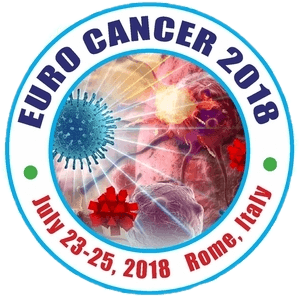
Rabah Iratni
United Arab Emirates University, UAE
Title: Targeting the AKT/mTOR/STAT3 pathways through a ROS-dependent ubiquitin proteasome degradation in breast cancer by the natural polyphenol compound, carnosol
Biography
Biography: Rabah Iratni
Abstract
We have previously showed that carnosol significantly inhibited the viability and colony growth of triple negative breast cancer cells and induced ROS-dependent beclin-1-independent autophagy and subsequent apoptotic cell death. Here were analyzed the molecular mechanism through which carnosol exerts its anti-cancer activity. Mechanistically, we found that carnosol inactivated the AKT/mTOR pathway by promoting the proteasome-dependent degradation of both proteins. Strikingly, we also found that carnosol targets Stat3 to degradation. Proteasome inhibition restored these proteins to a level comparable to control cells. The proteasomal degradation of mTOR, which occurred as early as 30 minutes post- carnosol treatment was concomitant with an overall increase in the level of ubiquitinated proteins and translated stimulation of proteolysis by the proteasome. Interestingly, we found that the treatment of the breast cancer cells with N-acetylcysteine, an ROS inhibitor, not only restored AKT/mTOR/Stat3 proteins to a level comparable to control cells, but also dramatically reduced carnosol-induced cell death and blocked the activation of autophagy and apoptosis. Our findings demonstrate that carnosol exerts its anti-breast cancer activity through stimulation ubiquitin proteasome system which consequently triggers both autophagy and apoptosis, making it a potential and valuable source of novel therapeutic cancer drug.

